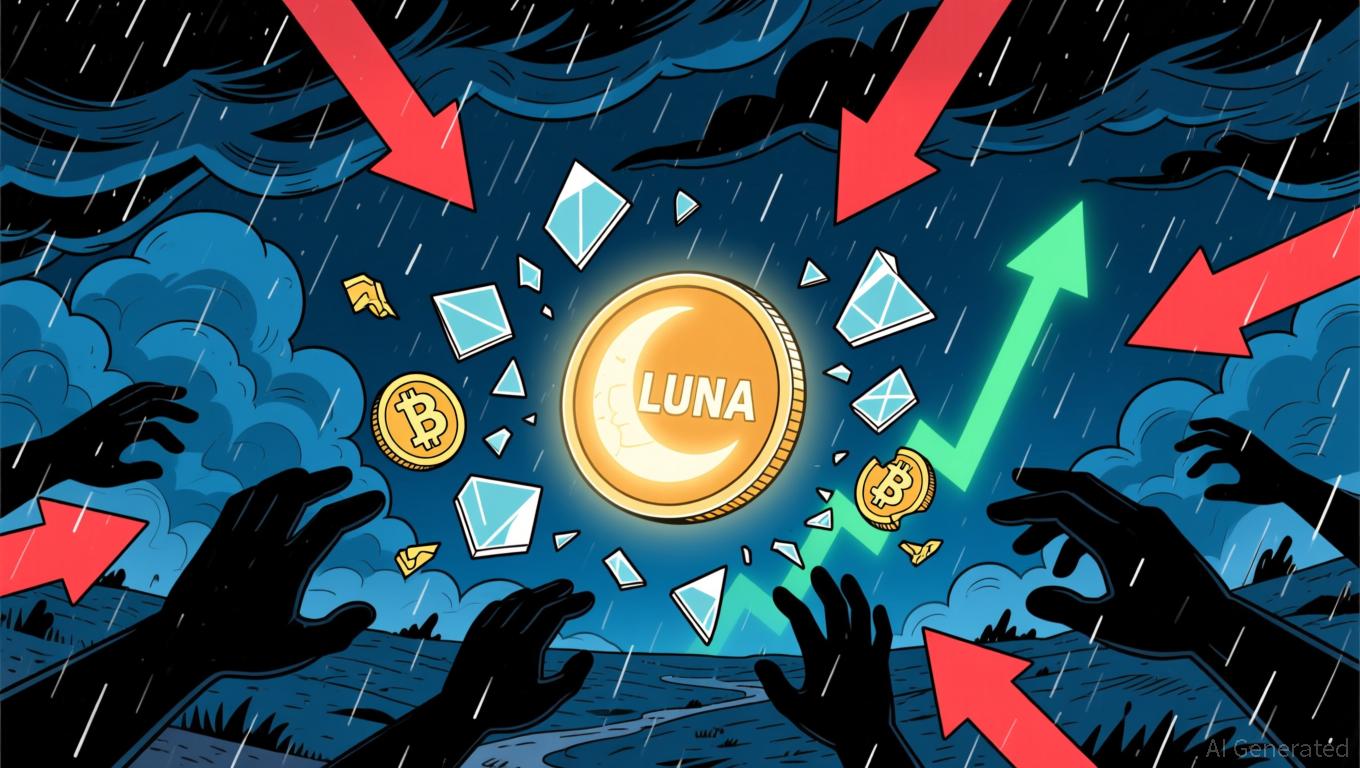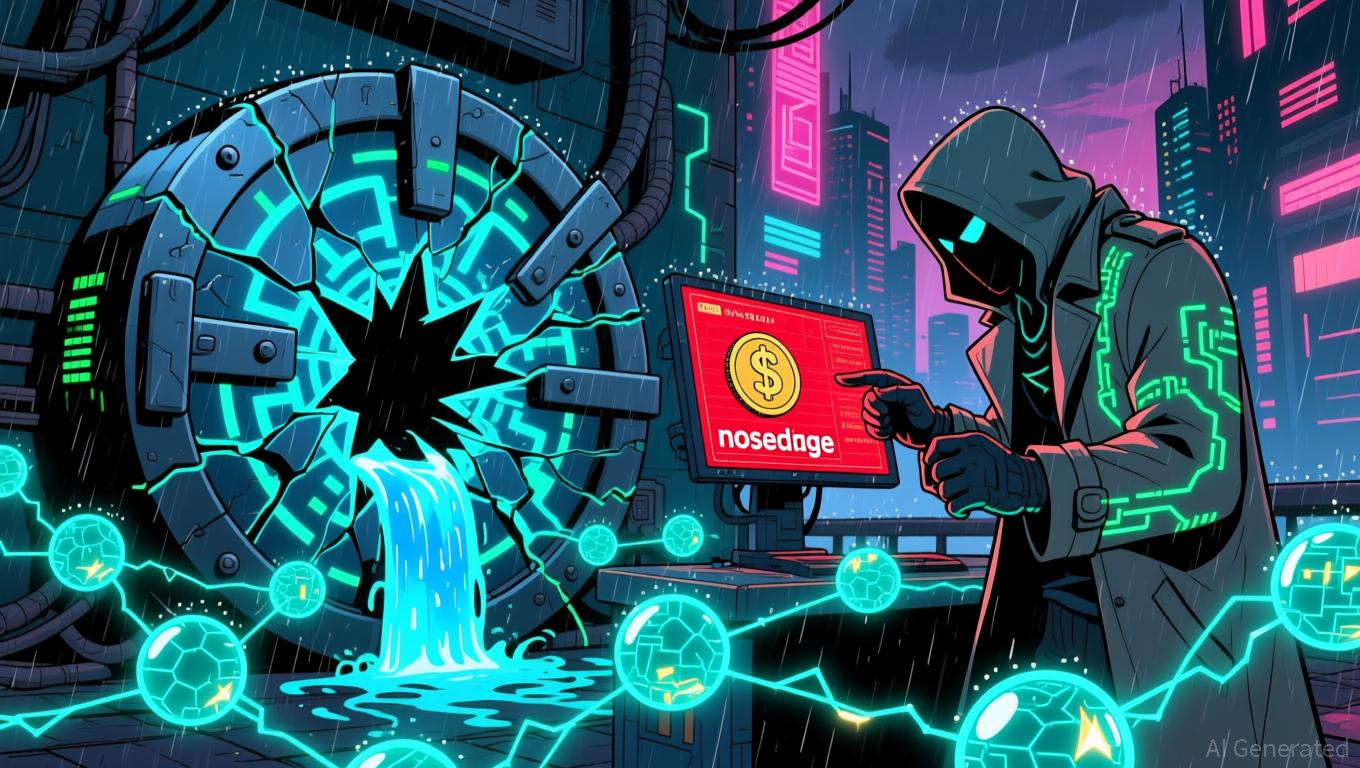Boring Co. Penalties Highlight the Challenge of Balancing Safety with Innovation
- The Boring Company faces a $493,297 fine for illegally dumping toxic drilling fluids into Las Vegas manholes, marking the largest penalty in Nevada's CCWRD history. - Nevada OSHA withdrew 2023 safety citations after legal review, citing unmet requirements for valid violations, raising concerns about regulatory enforcement consistency. - Critics highlight political pressure risks and legal loopholes, including Anti-SLAPP law tactics, that could hinder future accountability for high-profile tech ventures.
Elon Musk’s tunneling firm, The Boring Company, is under increased investigation after being hit with a $493,297 penalty from the Clark County Water Reclamation District (CCWRD) in Nevada for unlawfully disposing of drilling fluids into Las Vegas sewer systems. This record-setting fine for CCWRD resulted from the company releasing hazardous drilling mud—containing substances such as MasterRoc AGA 41S, which has reportedly caused chemical burns among workers—into public infrastructure. Inspectors discovered that dumping resumed after a temporary pause during official visits, leading the district to remove 12 cubic yards of contaminated material and recoup $131,297.08 in cleanup expenses, according to a
This incident has brought renewed focus to how Nevada OSHA has managed earlier violations involving The Boring Company. In 2023, the agency cited the company eight times for safety breaches, including risks of chemical exposure, but later rescinded some citations after legal assessment, as detailed in a
This controversy sheds light on the broader difficulties of overseeing major technology companies. The Boring Company’s ongoing environmental and safety issues—including previous conflicts over tunneling permits and worker injuries—have intensified demands for tighter regulation, according to a
The substantial fine also highlights the significant financial implications of infrastructure-related conflicts. CCWRD’s penalty is one of just two fines above $100,000 in the last three years, underscoring the gravity of The Boring Company’s conduct, as noted in the
Disclaimer: The content of this article solely reflects the author's opinion and does not represent the platform in any capacity. This article is not intended to serve as a reference for making investment decisions.
You may also like
Dogecoin News Today: Mutuum's Safe DeFi Presale Attracts Investment While Dogecoin's Growth Slows Down
- Dogecoin (DOGE) faces waning momentum as investors shift to Mutuum Finance (MUTM), a DeFi protocol nearing $18.9M in presale funds. - 21Shares' 2x Long Dogecoin ETF (TXXD) highlights institutional adoption, but DOGE's $0.175 price stagnates despite Tesla/AMC partnerships. - Mutuum's Phase 6 presale (90% sold) features 250% price growth and Halborn/CertiK security audits, driving FOMO ahead of $0.06 listing target. - With only 5% public token allocation and Q4 2025 roadmap, Mutuum's scarcity model contras

LUNA rises 4.04% in 24 hours despite ongoing downward trend
- LUNA rose 4.04% in 24 hours to $0.075 but remains down 20.13% monthly amid broader market weakness. - Short-term traders capitalized on dips, yet seven-day declines highlight waning investor confidence and lack of Terra network coordination. - Post-2025 Terra-UST collapse, LUNA struggles to regain dominance as stablecoin competitors capture market share. - Analysts warn volatility persists without fundamental upgrades, emphasizing long-term challenges to rebuild trust and momentum.

AAVE rises 1.9% after Founder Reveals ETHLend Relaunch in 2026 Featuring Built-in Bitcoin Compatibility
- Aave founder Stani Kulechov announced ETHLend 2.0 relaunch in 2026, returning to peer-to-peer lending with native Bitcoin collateral. - The upgrade aims to address original ETHLend's liquidity issues using modern infrastructure, MEV protection, and faster on-chain operations. - Native BTC collateral differentiates it from wrapped BTC, potentially expanding DeFi access for Bitcoin holders and enhancing cross-chain interoperability. - DeFi community shows mixed reactions, with AAVE token up 1.9% but down 2

Blockchain’s Defense Dilemma: Tackling Present-Day Attacks and the Emerging Quantum Challenge
- Port3 Network suffered a $14.45M loss after a hacker exploited a BridgeIn protocol flaw to mint and dump 162.75M PORT3 tokens, triggering an 82% price crash. - The attacker burned 837.25M tokens post-sale, while Port3 halted liquidity and deposits to contain the damage, though the token remains at $0.0086. - QANplatform's quantum-resistant QAN XLINK protocol passed a Hacken audit, addressing long-term risks as 65% of Ethereum addresses face quantum vulnerability. - The incident highlights DeFi's dual thr
